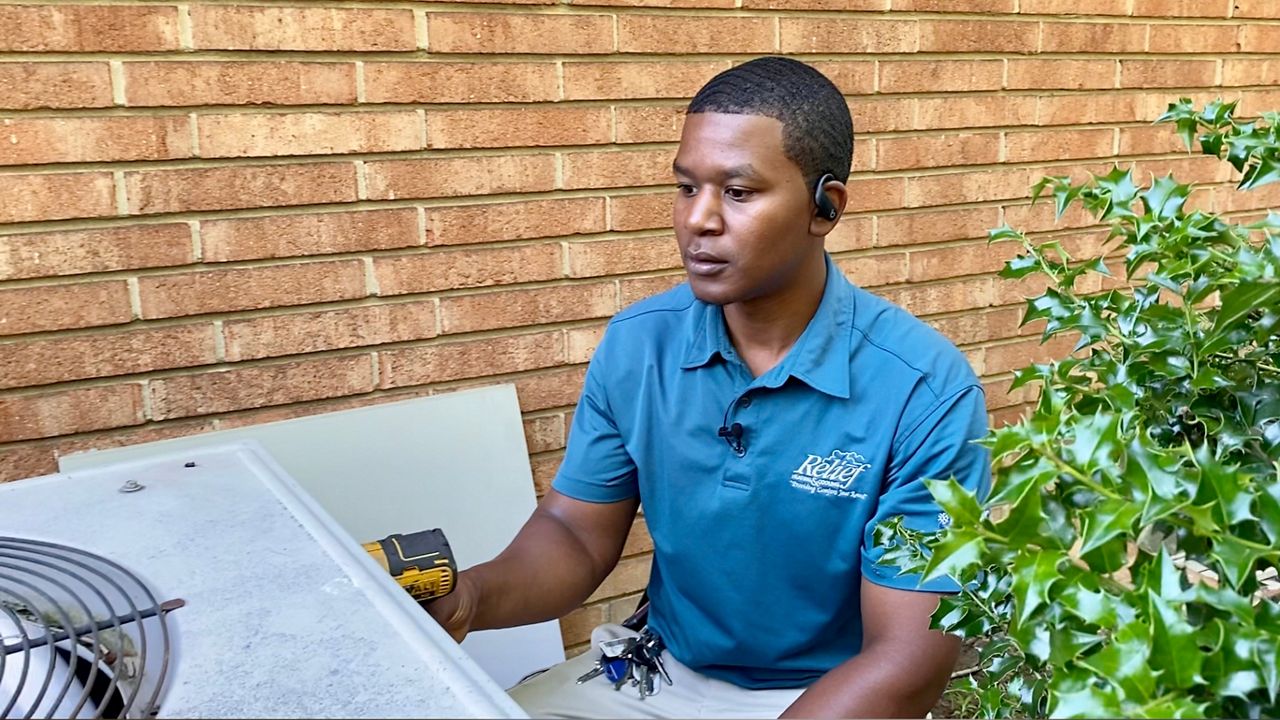KING, N.C. — It’s been a long nine days for District 10 Operations Officer Sam Griffith and the North Carolina Forest Service.
That’s how long his team has been battling the Sauratown Mountain Fire.
“Fire is powerful, it’s I hate to say, fun,” he said. “I hate fires that happen, but being able to help people is fun.”
Griffith has been helping people with fires while in the service for nearly seven years. A lot of them start with something simple.
“Someone spent an evening at the top of this hill and had a campfire, and they probably left it,” he said, gesturing toward the top of the mountain. “With the dry conditions, it’s ready to burn.”
And burn it did, but this fire was probably preventable.
“I’m sticking my hands here. Right there, is still hot,” Griffith said, using the back of his hand to feel the temperature of the ground. “If it’s cold enough to touch, it’s cold enough to leave.”
The forest service has the fire contained, but with dry, windy conditions, the leaves began to fall.
“It’s a whole new fuel source, organic material that can burn,” Griffith said. “But you get a scratch line, to mineral soil, so the fire backs down and then it lowers intensity.”
A scratch line is essentially a quickly dug-out line to prevent further spread of fire.
“We’ve just got to make sure it doesn’t come back. We’ve been on it for a week, the fire is ‘contained,’” Griffith said, using finger quotations as he said it. “It’s ‘out’ as some people would say, but there’s still the potential for it to keep going.”
They’ve had to put out small reburns every day they’ve been up.
“There was a stumphole somewhere, and all the leaves fell, and now we have fire on the ground moving again,” Griffith said.
A half-hour or so later, and the reburn was out. The job can be thankless. But for the team, it’s not about recognition.
“Everybody else is running away, and you’re running to it. At the end of the day, you’re putting a fire out,” Griffith said. “I don’t know how it could get much more rewarding than that.”
After a hard day’s work, he was already thinking about the next one.
“Do it again tomorrow!”






)


